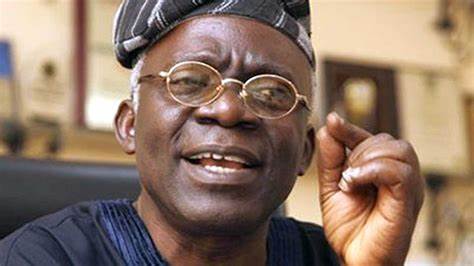Nigerian Labour Congress (NLC) has replied the Attorney-General of the Federation (AGF) and Minister of Justice, Lateef Fagbemi (SAN), contending that the National Industrial Court did not restrain Nigerian workers from protesting against “excruciating economic pains being experienced by the masses” under the present administration.
Fagbemi had stated in his letter dated February 23, addressed to the counsel to the NLC, Femi Falana (SAN), that the planned nationwide protest could amount to contempt in view of a restraining order of a National Industrial Court and cautioned the NLC against proceeding with the protest scheduled for February 27 and February 28, 2024.
According to Fagbemi, the Federal Government has “reasonably” complied with its Memorandum of Understanding (MoU) with organised labour even though certain areas of the terms of agreement have been inhibited by “unforeseen” circumstances.
“Upon the submission of grievances to the court, parties in the suit cannot resort to public protests over the same issues, as such conduct amounts to gross contempt and affront to the institution of our courts of law.
“Therefore, the proposed nationwide protest action in all ramifications is in clear violation of the pending interim injunctive order granted in Suit No: NICN/ABJ/158/2023 – Federal Government of Nigeria and Anor. V Nigerian Labour Congress and Anor on 5th June 2023 restraining both NLC and TUC from embarking on any industrial action or strike of any nature,” the AGF stated in his letter.
The leadership of the NLC had accused the Federal Government of refusing to implement the MoU which touched on workers’ welfare among other agreements.
But in his letter to the AGF, dated February 24, Falana maintained that the Federal Government, having earlier withdrawn the contempt proceedings filed against the NLC and Trade Union Congress (TUC) for embarking on public protest on August 2, 2023, the AGF ought not to have threatened the NLC with contempt of court over its plan to hold rallies from February 27-28, 2024 against the astronomical cost of living in the country.
Falana explained that while negotiations between organised labour and the Federal Government were in progress, the Federal Ministry of Justice had rushed to the National Industrial Court to file Suit No NICN/ABJ/158/2023 between the Federal Government of Nigeria & Anor. v Nigeria Labour Congress & Anor, seeking to force the NLC and TUC to comply with the ex parte order, though they promptly filed an application to set aside the order for want of jurisdiction.
He said the application to set aside the ex parte order filed by the defendants and the motion for interlocutory injunction filed by the claimants have not been considered as parties resolved to settle the case out of court.
Falana stated that, on November 10, 2023, the Federal Government filed another Suit, No NICN/ABJ/322/2023 between the Federal Government of Nigeria & Anor. at the National Industrial Court against the NLC and TUC, notwithstanding the pendency of Suit No. Suit No NICN/ABJ/158/2023, and the court barred workers from embarking on the planned strike but both NLC and TUC challenged the competence of the fresh suit on the ground that it constitutes a gross abuse of court process.
He said, while the application has not been heard and determined by the National Industrial Court, the fundamental rights of Nigerians have not been restrained by the court and added that, “We submit, without any fear of contradiction, that the proposed public protest of the NLC is not contemptuous of the two ex parte orders of the National Industrial Court.
“In particular, the issue of contempt does not arise as the NLC has challenged the jurisdiction of the National Industrial Court to entertain the substantive case.
“It is further submitted that the National Industrial Court has not restrained the members of the NLC from exercising their fundamental rights to freedom of assembly and freedom of expression to protest against the excruciating economic pains being experienced by the masses,” Falana added.
The Senior lawyer further stated that, in the case of Inspector-General of Police versus All Nigeria Peoples Party (2008) 12 WRN 65, the Court of Appeal, which is superior to the industrial court, upheld the fundamental right of Nigerians to protest on matters of public interest.
Falana added that, the National Assembly has ensured that the right of aggrieved citizens to protest peacefully for or against the Government is protected.
“Thus, section 83(4) of the Police Establishment Act 2020, which states “where a person or organization notifies the police of his or its intention to hold a public meeting, rally or procession on a public highway or such meetings in a place where the public has access to, the police officer responsible for the area where the meeting rally or procession will take place shall mobilize personnel to provide security to provide security cover for the meeting, rally or the procession,” he added.
Falana told the AGF that while he has advised the members of the NLC to conduct the rallies scheduled for February 27-28, 2024 in a peaceful manner, the AGF should use his good office, “to direct the Inspector-General of Police to provide adequate security to the conveners and participants in the protest in line with the provisions of Section 83(4) of the Police Establishment Act,” the letter stated.
